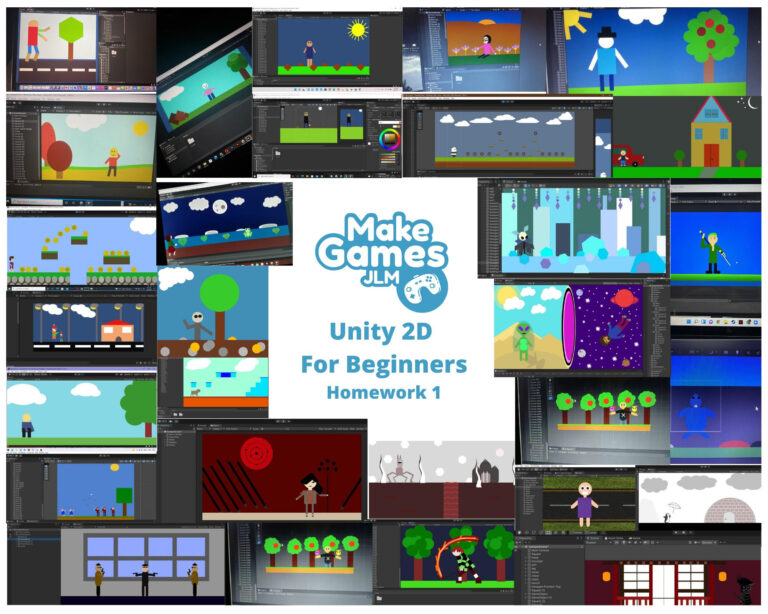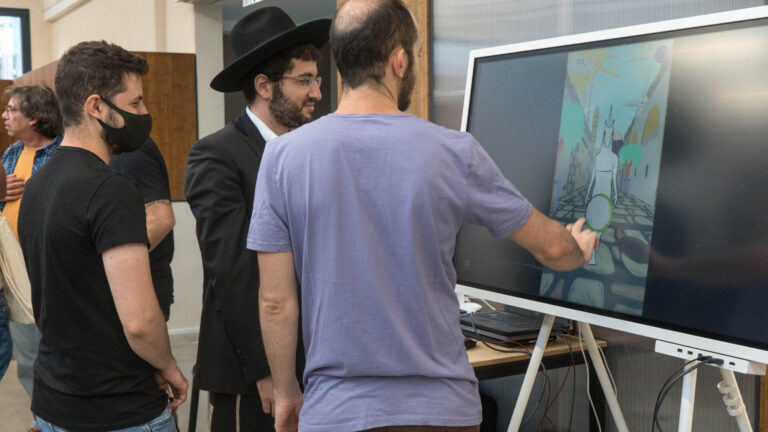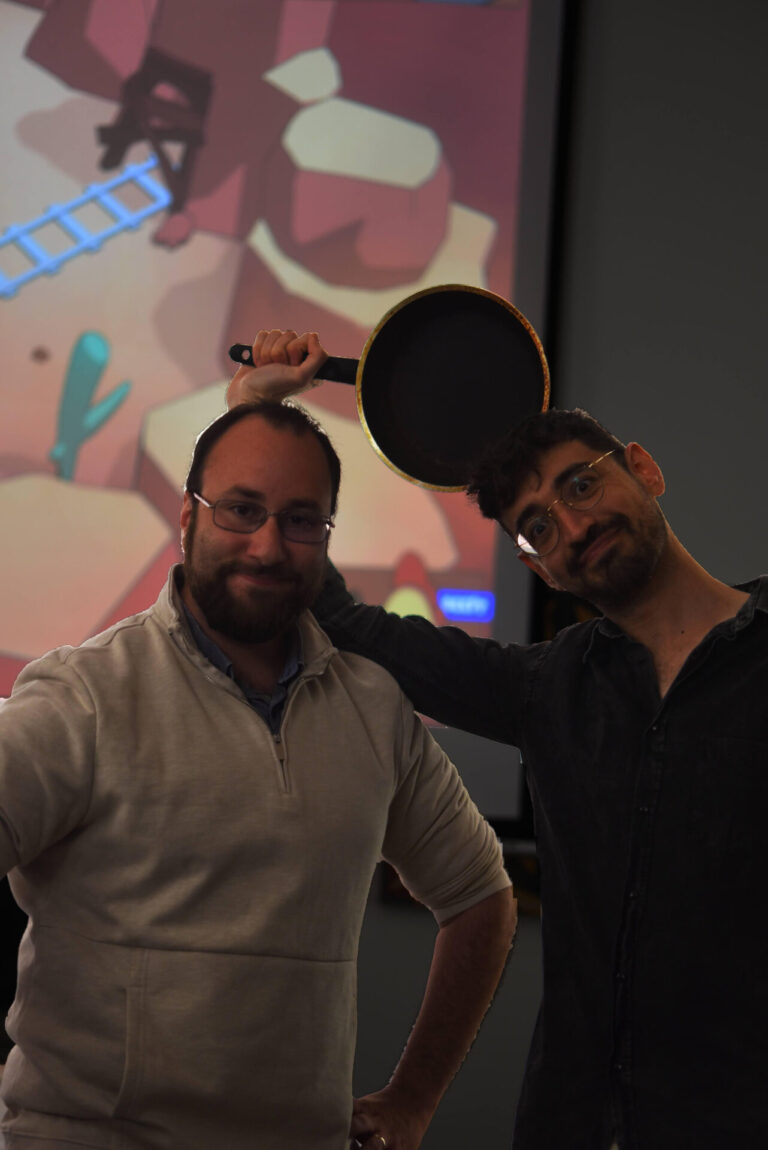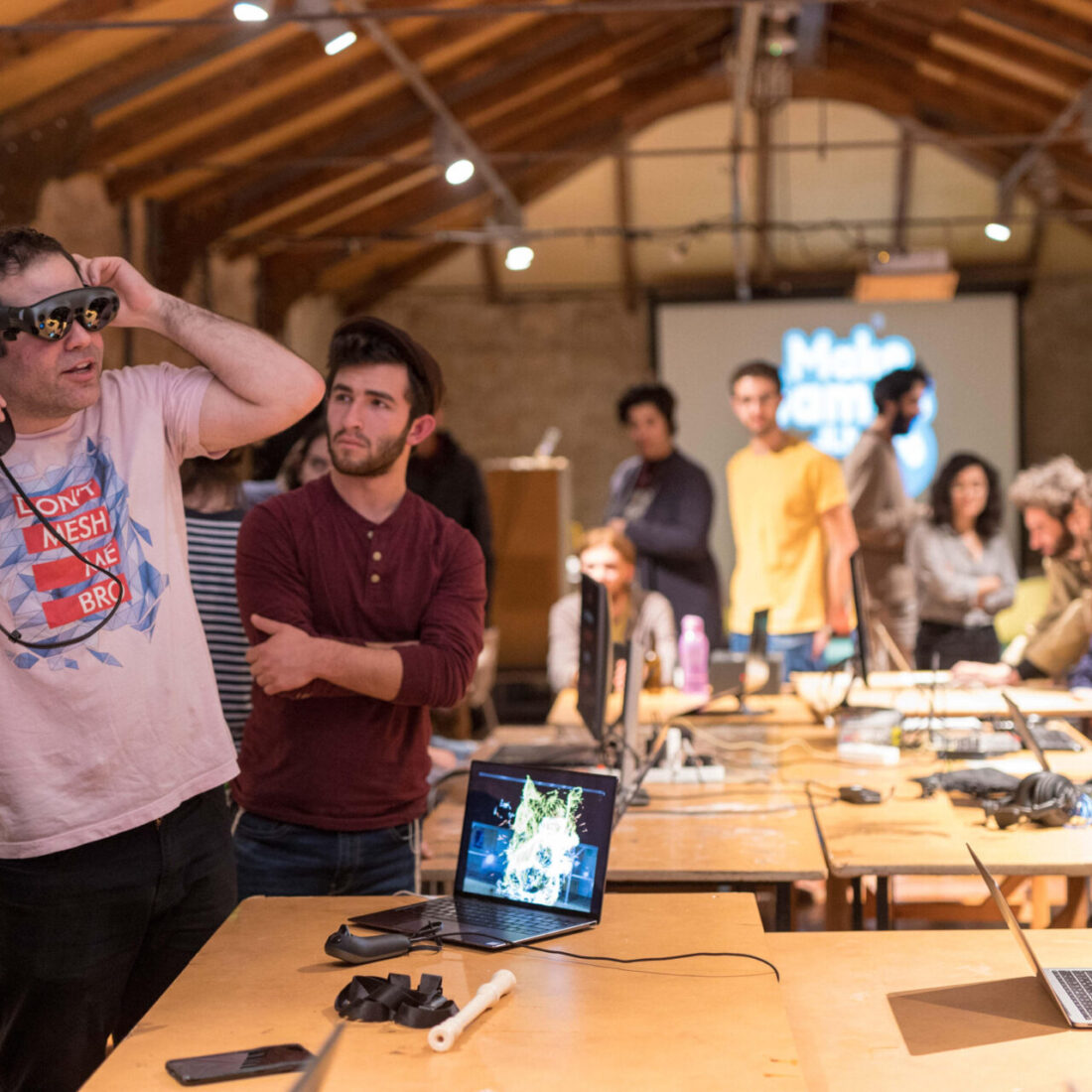Jerusalem is a city of many qualities. It boasts a rich history, a colorful mix of cultures and a never-ending flow of tourists.
One thing Jerusalem is not, however, is a gaming powerhouse. It is not even a gaming cellar. In fact, while many tech companies made Jerusalem their home in recent years, anyone interested in dabbling in the video games industry in Israel would have no choice but to move to Tel Aviv.
The founders of Jerusalem’s first major video games community – developers Amir Blum and Simon Gross – say their desire to change this status quo is what prompted them to establish MakeGamesJLM in 2019.
Developing a gaming ecosystem
“We were developing games in Jerusalem, and we knew some other people were as well, but there were no social events, meetups, courses, lectures or anything like that,” says Blum.
“People were always going to Tel Aviv for those things. So, we started MakeGamesJLM to show people that it was possible to do it in Jerusalem, and we wanted them to join us on that journey.”

The community is supported and partially funded by Jerusalem’s Tech Community: Made in JLM, the Jerusalem Development Authority, the American Center Jerusalem and Startup Nation Central. The rest of the funding comes from the worker cooperative Double Jump (“a professional expansion of MakeGamesJLM”) and its business ventures.
“MakeGamesJLM is a place for all of the different disciplines of game making,” says Gross. “We have programmers, 3D and 2D artists, sound designers, all sorts of people with their own area of expertise.”
The community holds weekly four-hour meetups. “Basically, it’s a support group,” says Blum.
“It’s a format we borrowed from similar communities around the world. The idea is that you come with your project and we all work in the same space, where we are able to share ideas, learn from each other and help each other.”
Representing all of Jerusalem
MakeGamesJLM also works to integrate Jerusalem’s under-represented groups, such as Arabs and ultra-Orthodox (“haredi”) Jewish women, by offering various training courses.

“The beauty of the games industry is that it’s not just technology, it’s also art. So it’s a ground where different backgrounds — professional and socia l– mix and create together. It was our vision from the beginning,” says Blum.
“We also worked alongside a leader of the Arab community in East Jerusalem, Amin Abu-Zahra, to create courses in Arabic for developers.”
Gross, meanwhile, developed and taught a course for ultra-Orthodox women. “Beyond the base level of meetups, the courses serve the purpose of getting people into this industry. In my course, the haredi women were learning how to do 3D art for games. At the end of the course, they were making their own game themes; it was really impressive.”
While the courses were fully subsidized at the beginning for anyone who wanted to take them, MakeGamesJLM recently added a small fee to make sure the people who sign up are “serious and aren’t going to quit” after one lesson.
“The courses are meant for people who are interested [in creating games], but don’t have the skillset yet. Integrating marginalized groups is a very important aspect of it all,” Blum adds.
Blum and Gross say they have noticed quite a few game studios popping up across Jerusalem. They say this is partly due to connections made at MakeGamesJLM community events.
But they add it’s impossible to measure the success of their enterprise in a quantifiable way. “We’re creating the right environment, but it’s not a college,” says Gross.
Gaming ideology
The difficulty in making game development popular in Jerusalem also stems from the characteristics of the games industry in Israel in general.
“The Israeli games industry is mostly focused around large, mobile game companies, like Playtika and ironSource,” says Blum. “Many of the games they produce are social gambling games, with casino-based mechanics. Mobile and free to play. These are the kind of companies that have succeeded in the games industry in Israel.”

MakeGamesJLM is more focused on the creative side of game development rather than the monetary aspect.
“If we’re creating something different in the Israeli games industry that doesn’t exist in Tel Aviv, we want it to be the kind of experience that would get to you in non-predatory ways. The focus here [in Jerusalem] is on the arts side of game development,” Blum tells ISRAEL21c.
“Games are an artform,” adds Gross. “We have our ideology, but money isn’t something to sneer at. So if you want to take our course to make mobile games — everybody’s welcome.”
‘Scramballed’
Among Double Jump’s business ventures is the Unboxed gaming studio, a creative partnership between Blum and Gross founded in 2018.
There, the two are creating “indie” games such as “Scramballed,” developed for the Nintendo console and is described as a “chicken tennis deathmatch” video game.

They say that despite their ideology, they do want Scramballed to sell well. “Unless you’re independently wealthy, in order to make games as an art, you need those games to be a monetary success,” says Blum.
“It’s our first commercial game. We’ve been trying to tell our community that it’s possible to do, and now that we’ve done it, hopefully it’ll serve as inspiration to others.”
For more information, click here.














